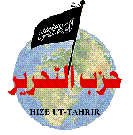 In a ruling published earlier this month, the BBC Editorial Complaints Unit (ECU), found that Newsnight and File on 4 had misled the public by broadcasting allegations in November 2006 concerning Hizb ut-Tahrir that were not based on evidence.
In a ruling published earlier this month, the BBC Editorial Complaints Unit (ECU), found that Newsnight and File on 4 had misled the public by broadcasting allegations in November 2006 concerning Hizb ut-Tahrir that were not based on evidence.
The ECU noted that both programmes alleged that Hizb ut-Tahrir, or a splinter group of its members, was responsible for planning a fire-bomb attack on a Croydon synagogue, based on information passed on by the shadowy organisation Vigil. The ECU ruled that this “was not a strong enough basis on which to mount such a serious allegation”.
In addition, Richard Watson, a reporter for Newsnight, misled listeners when he assured the Home Office Minister, Tony McNulty, that File on 4 had clear evidence that Hizb ut-Tahrir “seeks to propagandise on behalf of terrorists and glorify terrorism”. No such evidence existed and to this date the Home Office has not received any material from Newsnight, File on 4 or Richard Watson concerning Hizb ut-Tahrir. The ECU ruled that the programme did not cite sufficient evidence to justify these allegations.
Commenting on the ECU ruling, Dr Imran Waheed, media representative of Hizb ut-Tahrir, said, “In what has already been a mensis horribilis for the BBC, the ruling of the ECU dents the credibility of the reports on Newsnight and File on 4 which were dominated by smear and innuendo. The allegations presented by Newsnight and File on 4 were serious, but completely lacking in credibility. The BBC has a responsibility to its viewers and listeners to ensure balance and impartiality when relying on shadowy sources that are not open to public scrutiny. The BBC should not be a propaganda outlet for such organisations and their claims should be scrutinised. The BBC is a public broadcaster that must take its responsibilities to rigorously examine issues in an impartial manner seriously.”
“It is unfortunate that media outlets are able to rely on shadowy organisations and anonymous uncorroborated sources. Too often they operate on the margins of journalism by straying into the arena of smears and propaganda. It is also important to remember the context of last November’s fictitious and slanderous BBC allegations. The timing of the report by File on 4 and Newsnight was closely associated with the desire of the Home Office to ban Hizb ut-Tahrir as Blair visited Musharraf and offered £480m for the ‘war on terror’.”
Hizb ut-Tahrir press release, 1 August 2007
In its response to complaints about the programme the BBC (pdf) states:
Newsnight, BBC2 & File on 4, Radio 4, 14 November 2006
Complaint
The programmes carried versions of a report on the activities of the Islamic organisation Hizb ut-Tahrir, which drew on sources and information provided by Vigil, an organisation devoted to gathering intelligence in support of counter-terrorism. A representative of Hizb ut-Tahrir challenged the reliability of Vigil and its supposed sources within the organisation and complained that a misleading impression of the organisation and its activities had been given.
Ruling
The programme-makers were entitled to rely on sources whose identity was known to them and whose accounts could be to some degree corroborated, and the overall picture presented was well supported by evidence. However, both programmes included a suggestion that Hizb ut-Tahrir (or a splinter group of its members) was responsible for planning a fire-bomb attack on a Croydon synagogue, based on information passed on by Vigil from a source not identified to the programme-makers. This was not a strong enough basis on which to mount such a serious allegation. In addition, File on 4 included an exchange in which the reporter seemed to be assuring a Home Office Minister that the programme had clear evidence that Hizb ut-Tahrir was in breach of the law on glorifying terrorism, whereas the programme’s evidence (though it gave legitimate grounds for concern) did not establish this point.
Further action
The Editors of Newsnight and File on 4 discussed the issues arising from the ruling with their programme teams and the correspondent in question. They stressed the need for care in assessing and treating serious allegations from single unnamed sources and, in relation to File on 4, the need for precision when framing questions, particularly when they relate to allegations about a third party.
